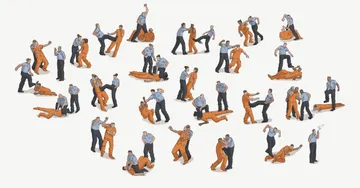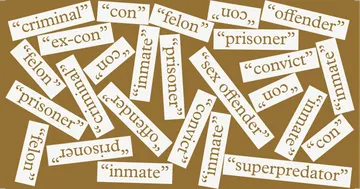Judge Pat Priest oversaw the 1998 trial in which Anna Vasquez, Kristie Mayhugh, and Cassandra Rivera were convicted of sexually molesting two young girls. This past week, Priest briefly emerged from retirement as the women — in addition to their friend Elizabeth Ramirez (who was convicted in a separate trial and is the aunt of the alleged victims) — returned to court as a part of their years-long effort to establish their innocence and be exonerated. Each spent more than a decade in prison. The courtroom in San Antonio, Texas, was full of family and friends, and quiet sobs peppered the day-and-a-half of testimony.
Priest alone is now tasked with recommending to the Texas Court of Criminal Appeals in Austin whether a “reasonable juror” would convict the women now, in light of new information. He has no deadline, and neither does the higher court.
Both of the alleged victims were expected to testify, but only Stephanie Martinez — the one victim who has recanted her accusations — took the stand. Martinez’s sister (whose name is not reported in the media because she is still a victim of sexual abuse in the legal record) did not appear. She officially maintains that the women pinned her and Martinez down, held a gun to their heads, stuck objects inside them, and threatened to kill them if they told anyone of the abuse.
The accusations are similar to others made in dozens of sexual assault cases around the country in the 1980s and 1990s, cases often made against homosexual defendants (the women are all openly lesbian) and were sometimes tinged with satanic and ritualistic elements. With two accusers offering completely contradictory claims, this case is an indicator for how other cases might play out.
Judge Priest listened as Martinez, who was seven when she made the accusations and is now 27, offered the fullest narrative to date of her recantation. She appeared nervous and stopped to hold back tears multiple times. She said she was coached to make the original accusations by her father Javier Limon, and she heaped new accusations against him, saying he was sexually promiscuous in front of his kids, regularly beat her with planks of wood, grabbed her by her hair and threw her, and spent weeks feeding her four saltine crackers for every meal as a punishment for minor misbehavior.
Prosecutors with the Bexar County District Attorney’s office, which won the convictions against the women in 1997 and 1998, declined to comment, so we do not know why the other victim, who has not recanted, as well as Limon himself, did not testify.
But in interviews two years ago, Limon told me that all of the accusations against him are false, that he never was violent towards his children, and that he never coached them to make these accusations. He maintains close contact with his other daughter, says she knows the abuse took place, and does not want to relive her experiences.
Martinez’s claims were backed by her mother — and Limon’s ex-partner — Rosemary Camarillo, as well as other witnesses who said that Javier made romantic advances towards Elizabeth, one of the defendants, was displeased when she dated women, and used the accusations as a weapon in his fight for custody.
The prosecutors present, Enrico Valdez (who has worked on this case for years) and Jay Brandon (who is the new head of the county’s Conviction Integrity Unit, which was created earlier this year to study possible wrongful convictions), mostly kept quiet. They continually gave up opportunities to cross-examine the witnesses, challenge the narrative, or offer any evidence of their own. Brandon briefly stated that this case rests “purely” on “the credibility of the witnesses.”
Alexandria Doyle, a psychologist from Dallas who interviewed the recanter for five hours and reviewed much of the original trial record, testified that the the recantation is credible in light of what we now know about memory. “I don’t think you have to be a psychologist to have serious questions about the nature of the allegation,” she said. “It doesn’t hang together, which suggests they’ve confused the source of their information, that they were being drilled or coached in a way that generated this story.”
The psychologist also said “false allegations are more likely to come from parents …particularly if there are custody issues involved,” referencing the fact that Limon had been fighting for custody with the accusers' mother when the accusations arose.
On the second day of hearings, a sex offender treatment counselor named Maria Molett said the women passed polygraphs and risk assessment tests, which show they have no “deviant” sexual interests.
Mike Ware, Keith Hampton, and the other lawyers for the women are also armed with statements from Dr. Nancy Kellogg, who examined the alleged victims and stated at the 1997 and 1998 trials, they showed physical signs of sexual abuse (which, she originally wrote, looked “satanic”), but has since said that today she would have found that same evidence inconclusive.
The defense lawyers have not said whether they will pursue any action against the doctor, or Philip Kazen, who prosecuted one of the women and has been criticized for strongly insinuating a connection between her homosexuality and her possible culpability for the crime. Kazen is now a district court judge in San Antonio.
Once the transcript from these hearings is delivered by the court reporter, attorneys for the women and prosecutors will write out final arguments for Judge Priest to consider before offering his own recommendation to the Court of Criminal Appeals. An exoneration could mean millions in state compensation.
Priest’s few statements to the courtroom suggested skepticism. He appeared unhappy with the focus on Limon. “We’ve been trying Javier Limon at some length here,” he said at one point, “and I’m wondering what relevance it has.” During a series of questions to the accusers' mother about whether she believed the recantation, Priest announced, “I’m not impressed by opinion testimony by non-experts.”
Before final arguments, the judge announced that this case is indicative of broader problems “when social science intersects with the criminal justice system.” Expert witnesses can claim the women might be innocent based on their assessment, he said, but juries and judges have to be more confident in their decisions. Psychologists and other doctors, he said, deal with “medical probability,” which “has nothing to do with legal reasonable doubt.”

